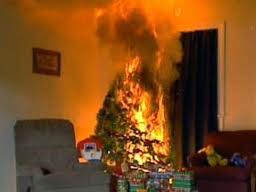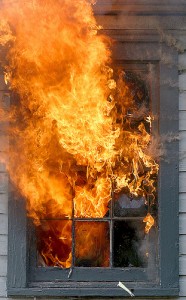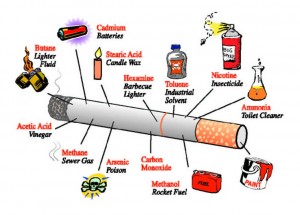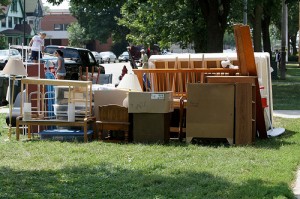Posted by Teresa on October 1, 2012 under Landlord Tenant Lawsuits, Landlord Tips | 
 Every experienced landlord has a horror story or two about terrible tenants. But a website based in Florida has visual proof: pictures of tenants and the destruction they leave behind.
Every experienced landlord has a horror story or two about terrible tenants. But a website based in Florida has visual proof: pictures of tenants and the destruction they leave behind.
The photos are posted on TerribleRenters.com, a site that aims to spare other landlords the trouble of renting to these folks. Each resident’s full name, along with a description of the problems he or she caused is posted, with photos of the property. Some postings include photos of the tenant.
Check out the site, and you’re going to see what countless landlords are forced to deal with when problem tenants move out:
- Crayon marks on walls.
- Burns on hardwood floors.
- Bags of garbage.
- Un-bagged garbage—piles of it.
- Tenant possessions simply left behind.
- Holes knocked through walls, leaving one room open to the next.
- Filthy carpets and linoleum.
- Rotten food left in refrigerators.
- Ovens that have never been cleaned.
- Drug paraphernalia.
- Animal feces.
- Stolen appliances and fixtures.
- Spray painted messages on walls and ceilings.
The list goes on and on. It is truly astounding to see how some people live. It’s even more shocking that they think it’s acceptable to leave such messes behind.
The typical “terrible tenant” has been evicted for non-payment of rent, not for damaging the property—so landlords face a double-whammy: loss of rent, plus the expenses of cleaning up garbage and property, expensive repairs and replacing stolen items.
TerribleRenters.com is based in Florida and most of the submissions are Florida residents, but some are from other states. Landlords post anonymously. Some are looking for their tenants to serve them notice or to file charges. Others just want to warn landlords not to lease to these problem tenants.
The best way to avoid problem tenants is to conduct thorough tenant screening. And it doesn’t hurt to Google the names on the application. Who knows? Maybe your applicants are listed on a terrible tenants site somewhere!
Posted by Teresa on December 11, 2011 under Landlord Tips | 
 Despite the beauty of holiday decorations, it’s clear they can be very dangerous. According to the National Fire Protection Association (NFPA), Christmas trees were the first things to ignite in an average of 240 home fires per year between 2005 and 2009. These fires caused an estimated average of 13 deaths, 27 injuries and nearly $17 million in property damage per year.
Despite the beauty of holiday decorations, it’s clear they can be very dangerous. According to the National Fire Protection Association (NFPA), Christmas trees were the first things to ignite in an average of 240 home fires per year between 2005 and 2009. These fires caused an estimated average of 13 deaths, 27 injuries and nearly $17 million in property damage per year.
And holiday lights and other decorative lights caused nearly 150 fires per year in that same period with an average of eight deaths, 14 injuries and $8.5 million in property damage.
Some of the top causes of the Christmas tree fires include:
- Electrical problems (33%)
- Heat source too close to the tree (20%)
- Decorative lights (13%)
- Candles (11%)
Help keep your tenants safe. Prepare a safety letter with fire prevention tips and make sure that each tenant gets one. Be sensitive to tenants’ various religious practices, and use non-denominational language.
Include the following tips in your notice:
- Follow the manufacturer’s directions for using holiday lights.
- Lights with loose cords, loose bulb connections and frayed, worn or broken cords should not be used.
- Lights should not be on when you are not at home. Unplug lights before leaving home or going to sleep.
- Never use candles on or near a tree.
- Place the tree at least three feet away from any heat source, including fireplaces, space heaters and heat vents
- If using a live tree, cut several inches off the base of the trunk before placing it in the tree stand and water it daily. Recycle the tree when it begins dropping needles. Don’t leave a dried-out tree in a storage area or against the building.
- Make sure you have a working smoke detector. Contact the rental office if you need to have yours checked.
Check with your local fire department for additional tips. It only takes a few minutes to prepare this notice and to help your tenants stay safe during the holiday season. Avoid the tragedy of a house or apartment fire.
Posted by Teresa on October 4, 2011 under Landlord Tips | 
 Laminate flooring can be easy to care for, long lasting and practically indestructible—which should make it a great choice for rental properties. However, landlords who are experienced in dealing with laminate flooring have differing opinions. If you’re considering using laminate flooring in your rentals, read on for some pros and cons, provided by actual landlords.
Laminate flooring can be easy to care for, long lasting and practically indestructible—which should make it a great choice for rental properties. However, landlords who are experienced in dealing with laminate flooring have differing opinions. If you’re considering using laminate flooring in your rentals, read on for some pros and cons, provided by actual landlords.
First, the Cons:
- Laminate floors are good in moist areas, but won’t tolerate standing water, or you’ll soon have separation in the seams.
- Laminate flooring can be fairly expensive.
- The floors can tear when moving heavy items, such as refrigerators.
- Cheaper level flooring will show wear in heavy traffic areas.
- It cannot be refinished or sanded.
- The surface can be slippery, with a risk of falling tenants or children.
- High traffic homes, like rentals, may not be the best fit for laminate flooring products.
Now for the Pros:
- Laminate floors look great.
- They can attract a higher level of tenants.
- Laminate costs less than hardwood.
- They are easy to install.
- The variety of wood species available is higher than ever.
- Some are warranted for 20 years or more.
- Laminate floors are easy to maintain.
- They don’t buckle, stain or warp.
- The finish is often scratch-resistant.
- Laminate often holds up better than carpet.
So there you have it. Some landlords have installed laminate successfully, while others say tile, vinyl plank flooring or inexpensive carpet work better for their rentals.
Posted by Teresa on June 14, 2011 under Lease and Rental Agreements | 
 If you do not require your tenants to hold renter’s insurance policies, you may want to reconsider your policy. Renter’s insurance is a nice layer of protection for landlords. It covers losses or injuries suffered due to tenant’s negligence—for example, if they start a fire or flood the building by leaving a faucet on overnight.
If you do not require your tenants to hold renter’s insurance policies, you may want to reconsider your policy. Renter’s insurance is a nice layer of protection for landlords. It covers losses or injuries suffered due to tenant’s negligence—for example, if they start a fire or flood the building by leaving a faucet on overnight.
Renter’s insurance also covers injuries suffered by a visitor to your rental property due to a tenant’s negligence, too. So the visitor who trips over the tenant’s dog and breaks a wrist can collect from your tenant’s insurance company, rather than yours.
Renter’s insurance can also protect the tenant’s belongings in case of fire or theft. While your property insurance covers the building after a fire, tenants could be at a complete loss without insurance. Renter’s insurance helps them find temporary lodging and replace their clothing, furniture and other household goods.
Since renter’s insurance is relatively inexpensive—only $15-$20 per month, on average—a renter’s insurance requirement automatically screens out potential tenants who have financial difficulties and cannot afford it.
If you agree that requiring renter’s insurance of all tenants is a good idea, add a clause to your lease agreement that states the following:
- The tenant acknowledges that the landlord’s insurance does not cover the tenant’s possessions.
- That the landlord’s insurance does not prevent tenant liability due to the tenant’s actions or negligence.
- In case of fire, flood, theft and other acts of nature, the landlord is not responsible for the tenant’s losses.
- Therefore it is required that the tenant retains renter’s insurance coverage.
- Allowing the policy to lapse may subject the tenant to responsibility for losses suffered by others due to the tenant’s or their guests’ actions.
Have your attorney provide you with an actual, legally binding provision, of course. Requiring renter’s insurance is an easy way to help landlords sleep a little better at night!
Legal disclaimer:
The contents of this article are intended for general information purposes only, and should not be relied upon as a substitute for obtaining legal advice applicable to your situation.
Posted by Teresa on May 2, 2011 under Lease and Rental Agreements, Tenant Screening & Background Checks | 
 We’ve often advocated that screening tenants begins with placing your For Rent ad. It should continue with the phone conversation you have with prospective tenants when they call in response to your ad.
We’ve often advocated that screening tenants begins with placing your For Rent ad. It should continue with the phone conversation you have with prospective tenants when they call in response to your ad.
But what exactly should a landlord ask each prospective lease applicant to avoid the tire-kickers and those whose credit and rental history make them ineligible to lease the property? Here are a few suggestions for questions to ask before showing your vacant rental units:
- Where do you live now?
- Are you currently renting?
- Why are you moving?
- How many people will be living with you?
- What kind of reference will your current landlord give you?
- What kind of reference will your previous landlords give you?
- What kind of work do you do?
- What types of pets do you have?*
- How many people who will be living in this unit are smokers?*
- We run credit and criminal background checks on every lease applicant over the age of 18. Will there be any issues there?
- We require a lease application and a fee to cover the background and credit check for each tenant over 18. Is there any problem with that?
- When do you want to move in?
- Will you have the first month’s rent and security deposit ready if we sign a lease?
- Do you have any questions about the process or the rental unit?
- Do you have a problem with any of these requirements?
*Asking “how many” rather than “do you have pets?” or “does anyone smoke?” often elicits an honest answer. If you do not allow pets or smokers, you’ve just eliminated the applicant.
Depending on the answers you get, the interested party may decide you are not the landlord for him or her. And you may decide they are not the tenant for you. Either way, you’ve saved your valuable time by avoiding showing the rental unit and going through the lease application process.
Posted by Teresa on December 23, 2010 under Housing Trends, Landlord Paperwork and Forms, Tenant Credit Checks | 
 Short-term leases are becoming more popular in some areas of the country. One trend is that homeowners who sell a home are less willing to buy right away, so while they wait and see what the market will bring, they rent for a while. Another factor is the toll the economic crisis took on renters’ credit scores. Landlords are less willing to take chances on one-year leases, so often a month-to month or six-month lease is a great option.
Short-term leases are becoming more popular in some areas of the country. One trend is that homeowners who sell a home are less willing to buy right away, so while they wait and see what the market will bring, they rent for a while. Another factor is the toll the economic crisis took on renters’ credit scores. Landlords are less willing to take chances on one-year leases, so often a month-to month or six-month lease is a great option.
When the economy and job market are both doing well, the ideal situation for a landlord is a one-year lease with a strong tenant. But even though the rental markets across the country are starting to show improvement, many landlords are far from the ideal—and they still need to fill rental units.
When credit scores are less than perfect, and home sellers are knocking on your door, looking for short-term leases, it makes sense to adjust your lease terms from one-year to six-month or month-to-month.
Month-to-month leases mean that at the end of any month, the tenant can simply move—or the landlord can end the lease. Most leases require notice on each side, but if neither side ends the lease, it continues for another month.
7 Advantages of Short-term Leases:
- Your rental units could be occupied instead of empty
- Improved cash flow
- Possibility of higher rent negotiation
- Easier transition between tenants (less clean-up and maintenance)
- Larger pool of possible tenants
- You can get rid of a bad tenant more quickly
- For month-to-month leases, the rent can be adjusted at any time
Remember, no matter what the length of the lease, proper tenant screening is the most important step you can take prior to signing it. Conduct a thorough tenant credit check and background check and you’ll feel better about offering a lease to short-term tenants.
Posted by Teresa on December 16, 2010 under Housing Trends, Landlord Tips | 
 A new study in Pediatrics suggests that children living in apartment buildings are at higher risk of exposure to passive smoke than children living in detached houses. Experts say that components of tobacco smoke that are harmful to children can seep through apartment walls, then be absorbed by furniture, curtains, clothing and carpet. This makes vulnerable children unable to avoid exposure.
A new study in Pediatrics suggests that children living in apartment buildings are at higher risk of exposure to passive smoke than children living in detached houses. Experts say that components of tobacco smoke that are harmful to children can seep through apartment walls, then be absorbed by furniture, curtains, clothing and carpet. This makes vulnerable children unable to avoid exposure.
The study focused on 5,000 children who live in smoke-free households, including detached houses, duplexes and apartment buildings. Researchers looked for cotinine, a product of nicotine and a highly sensitive marker for tobacco, in the children’s blood. The study found that overall, 73% of the kids were exposed to tobacco. Of children who live in apartment buildings, 84.5% had cotinine levels indicating tobacco exposure, while only 70.3% of children living in detached homes did. For children in semi-attached or duplex homes, the figure was 79.6%.
These numbers suggest that no matter where they live, children have no control over second-hand smoke. But in apartment buildings, the chance of exposure is much higher than for kids in detached homes. No matter who is smoking, even if they are in an apartment on the next floor or down the hall, the chemicals and carcinogens travel through ventilation systems, shared walls and ductwork.
Other findings were that tobacco contaminants were highest in children under 12, those who are black and those who live below the poverty level. While parental smoking is the most common source of secondhand smoke exposure, the new study shows that parents even the children of nonsmoking are exposed to these harmful substances.
While it’s too early to know what ramifications studies like this will have on legislation, it’s not too far outside the realm of possibility to imagine that rental property owners who allow smoking in their units could, at some point, be held responsible for damages to non-smokers’ health. In a perfect world, no one would be exposed to others’ harmful habits—especially children who have absolutely no choice in the matter. Until then, rental property owners can convert their properties to smoke-free housing. This study could be the most compelling reason to do so ever.
Posted by Teresa on December 14, 2010 under Landlord Paperwork and Forms, Landlord Tips | 
 Many tenants notify landlords of their plans to move at the end of a lease by mentioning it in passing. Others assume that, if they haven’t signed a new lease, the landlord knows they are moving and they don’t need to notify.
Many tenants notify landlords of their plans to move at the end of a lease by mentioning it in passing. Others assume that, if they haven’t signed a new lease, the landlord knows they are moving and they don’t need to notify.
It’s a good idea to require tenants to provide a written notice of their intent to move. Many states require it, and if you use a well-written lease, it probably does as well.
The Advantages of Written Notices
Requiring tenants to put their intentions in writing is a good idea for several reasons:
- It eliminates the mix-up that can occur with verbal notifications
- It keeps the landlord/tenant relationship more businesslike
- It may be state law
- Written notices leave nothing to the imagination
- You won’t forget the tenant’s move-out date, which can lead to problems
- You’ll have time to prepare the security deposit return or deductions
What to Include on a Tenant’s Notice of Intent to Vacate Unit
Use a simple form, either one you obtain online or one you create yourself. You can provide it to tenants at lease signing, although it’s not likely they’ll keep it around long enough to turn it in at the end of the lease. Many landlords provide a form to tenants 60 or 90 days before the lease is up, with instructions to return it within 30 days of the end of the lease, if they plan to move.
The form should include:
- The date the form was completed;
- The name of the landlord or property management company;
- The address of the rental unit;
- Legal language including: The undersigned Tenant (name) hereby gives written notice of intent to vacate the rental unit at (address) on (date);
- A statement that the tenant understands they are responsible for rent until the end of the current lease or the day they vacate the unit, whichever is later;
- A statement that in accordance with the lease, the landlord is allowed reasonable access with advance notice to show the rental unit to prospective renters or contractors;
- A line for the tenant to sign and date the form.
As you can see, a thorough tenant move-out form covers all the bases: the date of the move-out, the day the rent is to be paid through, and permission to show the unit or allow access to workers.
Landlords who want even more information can include a short survey on the form, asking why the tenant is moving and if there is anything that could have been done to keep him or her as a tenant. This type of feedback is extremely valuable!
Pre-screen all tenants as part of your standard application process. Background and credit checks will help ensure you rent to qualified tenants. For more landlord resources, including forms and information on tenant screening, turn to E-Renter.com.
Posted by Teresa on May 18, 2010 under General | 
 There are just as many rental property owners who wouldn’t dream of personally managing their rentals as there are landlords who would never allow a property manager to do it. As your rental property business grows, you may find it becoming too much to handle by yourself.
There are just as many rental property owners who wouldn’t dream of personally managing their rentals as there are landlords who would never allow a property manager to do it. As your rental property business grows, you may find it becoming too much to handle by yourself.
If you’ve made the decision to turn over the day-to-day management of your rental business to a property manager, keep these tips in mind for managing the individual or company you hire.
1. Even though the property management contract is signed, you’re not off the hook. You’re in charge, so you can feel free to take charge, be in control of the relationship, and require a certain level of performance from your rental manager.
2. Supervise their activities as well as you can. This can be a little more difficult if you are an out-of-town rental property owner. Still, you’ll want to avoid nightmares like unauthorized repair bills, erroneous charges, and poor rent collection. Require photos of repairs for proof they are done properly and to your satisfaction.
3. Be realistic. Some repairs will cost more than you think they will. Property managers shouldn’t have to call you for permission to spend $10 on your behalf. And emergencies happen—so don’t risk creating a bad relationship by complaining about emergency repairs—especially if they will save you money in the long run.
4. Remember, rental property managers are in business to make a profit. If they are providing a valuable service, you should expect to pay for it. Just be sure to check over invoices carefully, ask for clarification if don’t understand something, and require explanations of anything you don’t recognize as necessary.
5. Keep your contract handy and make sure they are following its terms. If rents are due in your account by the 15th of the month, and they routinely miss it by a day, they are in breach of contract. If monthly tenant reports, vacancy reports, and marketing reports are required—but are not happening—don’t let the property manager get away with it, or they’ll continue to do so. Be sure that you are abiding by the contract, too—remember you agreed to it.
6. If the terms of the contract you signed aren’t working out as you had hoped, ask to re-negotiate. It can’t hurt to ask. And if the relationship is still unsatisfactory at the end of the contract term, find another property manager. At least you’ll have a better idea of what works and doesn’t work for you.
7. Show the property manager that you’re the boss. Someone has to be in charge, and it’s your property with your tenants—and your liability. So that someone in charge should be you! Don’t pay for repairs you don’t authorize. Require pre-approval for any expenditures over a certain amount, like $100. Don’t allow tenants to sign leases unless they meet your criteria for tenant background screening and credit checks.
Property managers can be 100% honest, wonderful communicators, and an integral part of your rental property business. But not all of them are. When you hire a company to manage your rental property, you still need to manage the manager!
Posted by Teresa on March 26, 2009 under Landlord Tips | 

If you’ve decided that property management is not for you, you’re not alone. There are thousands of successful property management companies because there is a real demand for their services. They have the expertise and experience to manage your property, plus they’re knowledgeable about all the laws affecting rental housing. They’ll handle all the bookkeeping, rent collection, and emergency issues, while dealing with tenants fairly and objectively.
There are certain disadvantages to using a professional service. First—they’re not free. If your margin between income and expenses is slim, it might not be cost-effective for you to hire a management company. Also, they might not care for your property as well as you, or be as aggressive in filling your vacancies as you would be.
Check out several property management firms before you decide on one. Have a checklist handy and ask at least these basic questions to narrow your choice:
• How will you prepare the rental unit for leasing?
• How will you advertise and show the unit?
• Do you prescreen tenants for credit and criminal records?
• What is the rent collection procedure? What about delinquent rent?
• What do you charge? Are there additional charges?
• Will I receive monthly reports? What do they include?
• How do you handle maintenance? What about emergencies?
• Do you mark up materials and supplies?
• How do you handle tenant complaints?
• How firmly will you enforce my rules and procedures?
• Can you give me an example of your attention to detail?
Always ask for references and follow through with talking to them. A complete client list is even better; specifically check with owners of properties in your size category. Visit the property management company’s office and meet the staff. Don’t sign the contract until you are sure the company has a sound track record. Know that some management companies charge lower fees and make up the difference in repairs, by marking up supplies and labor, or by performing unnecessary repairs.
Finally, make sure the company has adequate insurance. They should also be bonded to protect you, since they will be handling and collecting your money.
Finding the right property manager will make a big difference in your cash flow because they take care of all the issues that affect it. They fill the vacancies, find good, solid tenants, and perform all maintenance and accounting. Make sure you choose a property management company that is squarely on your side.
 Every experienced landlord has a horror story or two about terrible tenants. But a website based in Florida has visual proof: pictures of tenants and the destruction they leave behind.
Every experienced landlord has a horror story or two about terrible tenants. But a website based in Florida has visual proof: pictures of tenants and the destruction they leave behind.








